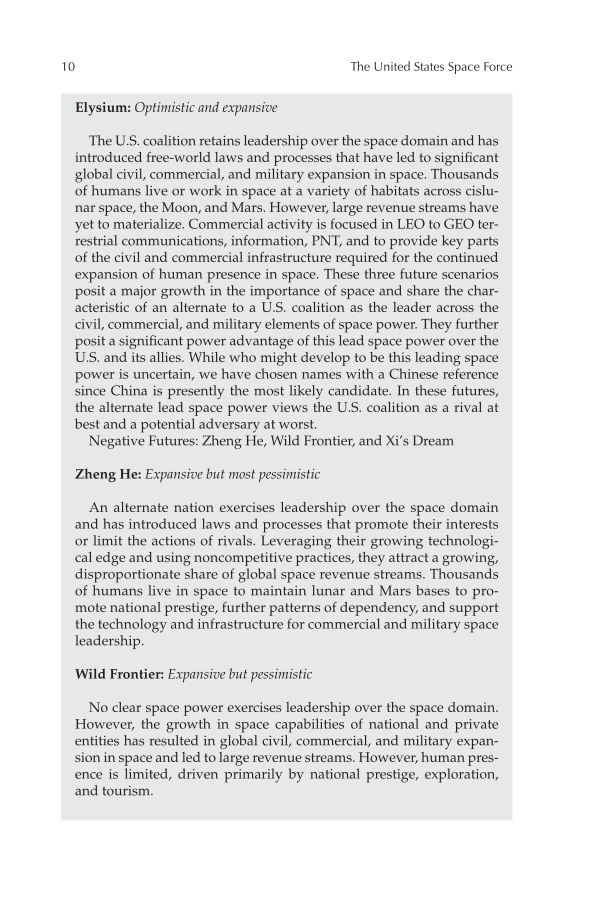10 The United States Space Force Elysium: Optimistic and expansive The U.S. coalition retains leadership over the space domain and has introduced free-world laws and processes that have led to significant global civil, commercial, and military expansion in space. Thousands of humans live or work in space at a variety of habitats across cislu- nar space, the Moon, and Mars. However, large revenue streams have yet to materialize. Commercial activity is focused in LEO to GEO ter- restrial communications, information, PNT, and to provide key parts of the civil and commercial infrastructure required for the continued expansion of human presence in space. These three future scenarios posit a major growth in the importance of space and share the char- acteristic of an alternate to a U.S. coalition as the leader across the civil, commercial, and military elements of space power. They further posit a significant power advantage of this lead space power over the U.S. and its allies. While who might develop to be this leading space power is uncertain, we have chosen names with a Chinese reference since China is presently the most likely candidate. In these futures, the alternate lead space power views the U.S. coalition as a rival at best and a potential adversary at worst. Negative Futures: Zheng He, Wild Frontier, and Xi’s Dream Zheng He: Expansive but most pessimistic An alternate nation exercises leadership over the space domain and has introduced laws and processes that promote their interests or limit the actions of rivals. Leveraging their growing technologi- cal edge and using noncompetitive practices, they attract a growing, disproportionate share of global space revenue streams. Thousands of humans live in space to maintain lunar and Mars bases to pro- mote national prestige, further patterns of dependency, and support the technology and infrastructure for commercial and military space leadership. Wild Frontier: Expansive but pessimistic No clear space power exercises leadership over the space domain. However, the growth in space capabilities of national and private entities has resulted in global civil, commercial, and military expan- sion in space and led to large revenue streams. However, human pres- ence is limited, driven primarily by national prestige, exploration, and tourism.
Document Details My Account Print multiple pages
Print
You have printed 0 times in the last 24 hours.
Your print count will reset on at .
You may print 0 more time(s) before then.
You may print a maximum of 0 pages at a time.









































































































































































